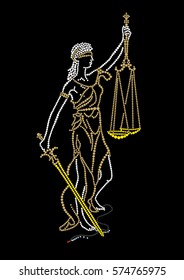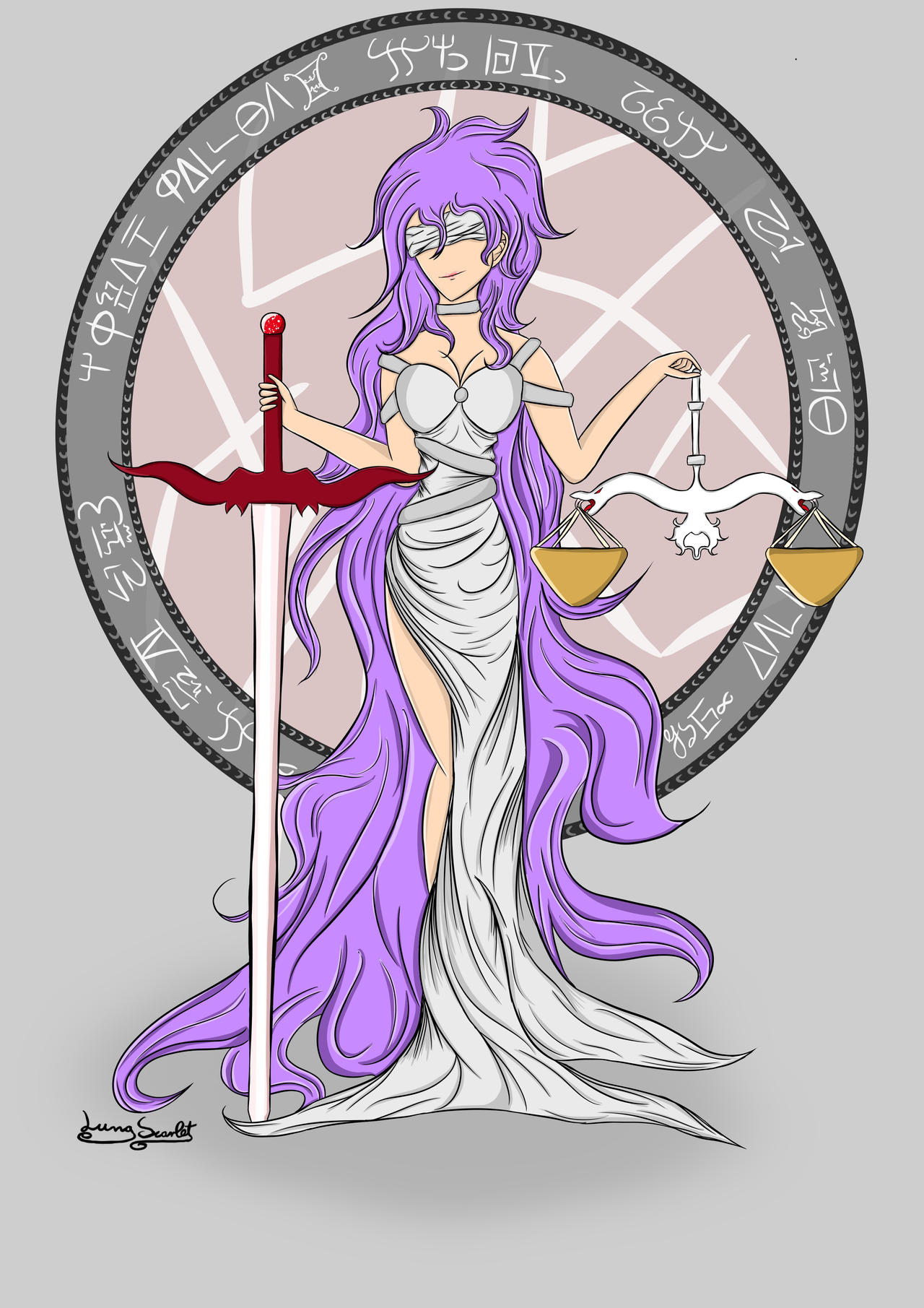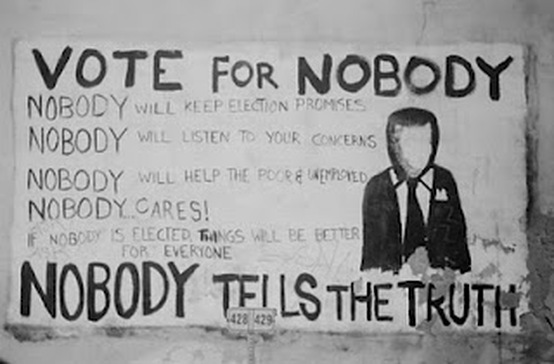Mission Statement
The Rant's mission is to offer information that is useful in business administration, economics, finance, accounting, and everyday life. The mission of the People of God is to be salt of the earth and light of the world. This people is "a most sure seed of unity, hope, and salvation for the whole human race." Its destiny "is the Kingdom of God which has been begun by God himself on earth and which must be further extended until it has been brought to perfection by him at the end of time."
Wednesday, January 29, 2020
Tuesday, January 28, 2020
Business Law (part 20)
Special Bailments
by
Charles Lamson
Hotelkeepers
A hotelkeeper regularly engages in the business of offering lodging to all transient persons. The hotelkeeper may also supply food or entertainment, but providing lodging to transients is the primary business.
 |
A person who provides rooms or room and board to permanent lodgers but does not behave as able and willing to accommodate transients is not a hotelkeeper. Such persons are boardinghouse keepers and the laws of hotelkeepers do not apply to them. The owner of a tourist home is not a hotelkeeper if the establishment does not advertise as willing to accommodate all transients who apply. Most people who run hotels and motels are hotelkeepers. A hotel that caters to both permanent residents and transients is a hotelkeeper only with respect to the transients.
Who are Guests?
To be a guest one must be a transient obtaining lodging, not a permanent resident or visitor. One who enters the hotel to attend a ball or other social function, to visit a guest, or to eat dinner is not a guest. A guest need not be a traveler nor come from a distance. A guest might be a person living within a short distance of the hotel who rents a room and remains there overnight.
The relationship of guest and hotelkeeper does not begin until the hotelkeeper receives the person seeking lodging as a guest. The relationship terminates when the guest leaves or makes arrangements for permanent residents at the hotel.
Duties of a Hotelkeeper
The duties of a hotel keeper include:

Duty to Serve All Who Apply
The basic test of hotelkeepers is that they hold themselves out as willing to serve without discrimination all who request lodging. However, this does not require hotelkeepers to serve someone who is drunk, someone who is criminally violent, someone who is not dressed in a matter required by reasonable hotel regulations applied to all, or when no rooms are available. If a hotel refuses lodging for an improper reason, it is liable for damages, including exemplary damages, to the person rejected.
In addition, a hotel may be liable for discrimination under a civil rights or similar statutory provision and may also be guilty of a crime if a court has issued an injunction prohibiting such discrimination. By virtue of the Federal Civil Rights Act of 1964, neither a hotel nor its concessionaire can discriminate against patrons nor segregate them on the basis of race, color, religion, or national origin. When there has been improper discrimination or segregation, or it is reasonably believed that such action may occur, the federal act authorizes the institution of proceedings in the federal courts for an order to stop such practices.
Duty to Protect a Guest's Person
A hotelkeeper must use reasonable care for the guest's personal safety. The same standard applies to the personal safety of a visitor or patron of a newstand or lunch room.
Reasonable care requires that a hotelkeeper provides fire escapes and also have conspicuous notices indicating directions to the fire escapes. If a fire starts due to no negligence of the hotelkeeper or employees, there is no liability to the guests for their personal injuries unless they could show that the fire was not contained because of a failure to install required fire safety features. In one case the court held the hotelkeeper was not liable for the loss of life on the floor where the fire started, but was liable for all personal injuries on the four floors to which the fire spread because of the negligence of the hotel.

If a hotelkeeper knows of prior criminal acts on or near the hotel premises, additional security measures may be required. However, the hotelkeeper is not liable if the guest's behavior increases the risk of criminal attack.
Duty to Care for the Guests Property
Traditionally, the hotelkeeper had a very high duty and was an insurer of the guest's property except for losses occurring from:
In every state this liability has been modified to some extent. The statutes very greatly but most limit a hotel's liability to a designated sum or simply declare that the law of mutual-benefit bailments applies.
Some states permit the hotelkeeper to limit liability by posting a notice and the guest's room. Some of the statutes require that the hotel keeper, in order to escape full liability, provide a vault or other safe place of deposit for valuables such as furs and jewelry. If a guest fails to deposit valuable articles when notice of the availability of a safe has been posted, the hotelkeeper is released from liability as an insurer.
Hotelkeepers Lien
A hotelkeeper has a lien on the baggage of guests for the value of the services rendered. This lean extends to all wearing apparel not actually being worn, such as an overcoat or an extra suit.

If hotel charges are not paid within a reasonable time, the hotel keeper may sell the baggage to pay the charges. Any residue must be returned to the guest. The lien terminates if the property is returned to the guest even though the charges are unpaid.
The lien usually attaches only to baggage. It does not apply to an automobile, for example, in most states. If a hotelkeeper charges separately for car storage, this charge but not the room charge must be paid before the car can be removed.
*SOURCE: LAW FOR BUSINESS, 15TH ED., 2005, JANET E. ASHCROFT, J.D., PGS. 172-174*
end
|
Sunday, January 26, 2020
Business Law (part 19)
Personal Property
by
Charles Lamson
Intangible personal property is covered in the next couple of posts. The most personal kind of intangible personal property is your identity, and it's theft, through use of your Social Security number, bank account, or credit card number, is not only frightening, but also difficult to solve. Federal and state governments are addressing the problem through various laws and regulations. For information on this issue, visit www.consumer.gov/idtheft.
 |
Nature of Personal Property
Anything that may be owned is property. A person may enter into a contract with another to use property without becoming the owner of the property. The law protects not only the right to own property but also the right to use it. Property includes not only physical things but also such things as bank deposits, notes, and bonds that give the right to acquire physical property or to use such property.
Personal Property
Property is frequently classified according to its mobility. If it is movable property, it is personal property. Thus clothing, food, TVs, theater tickets, and even house trailers are personal property.
Land is not personal property, but an interest in land less than complete ownership, such as a leasehold, is normally classified as personal property.
In addition to movable physical property, personal property includes rights to money such as notes, bonds, and all written evidences of debt. Personal property is divided into two classes:
Tangible Personal Property
Tangible personal property is personal property that can be seen, touched, and possessed. Tangible personal property includes animals, merchandise, furniture, annual growing crops, clothing, jewelry, and similar items.

Intangible Personal Property
Intangible personal property consists of evidences of ownership of rights or value. The property itself cannot be touched or seen. Some common forms of intangible personal property include checks, stocks, contracts, copyrights, and savings account certificates.
Methods of Acquiring Personal Property
The title to personal property may be acquired by purchase, will, descent, gift, accession, confusion, and creation.
Purchase
Ownership most commonly occurs through purchase. The buyer pays the seller, and the seller conveys the property to the buyer.
Will
The owner of property may convey title to another by will. Title does not transfer by will until the person who made the will dies and appropriate judicial proceedings have taken place.
Descent
When a person dies without leaving a will, that person dies intestate. The person's heirs acquire title to the personal property according to the laws existing in the decedent's state of residence.

Gift
A gift is the transfer made without consideration in return. The person making a gift it's called the donor. The person receiving the gift it's called the donee. In order to have a valid gift, the donor must have the intention to make the gift and there must be a delivery of the property being given to the donee.
Accession
Accession is the acquiring of property by means of the addition of personal property of another. If materials owned by two people are combined to form one product, the person who owned the major part of the materials owns the product.
Confusion
Confusion is the mixing of the personal property of different owners so that the parts belonging to each owner cannot be identified and separated. Grain, lumber, oil, and coal are examples of the kinds of property susceptible to confusion. The property, belonging to different owners, may be mixed by common consent, by accident, or by the willful act of some wrongdoer.
When confusion of the property occurs by Common consent or by accident, each party will be deemed the owner of a proportionate part of the mass. If the confusion is willful, the title to the total mass passes to the innocent party, unless it can be clearly proven how much of the property of the one causing the confusion was mingled with that of the other person.

Creation
One may acquire personal property by creation. This applies to inventions, paintings, musical compositions, another intellectual productions. Title to these may be obtained for a period of years through patents and copyrights.
The one who first applied for and obtains a patent gets title to the production. Creation alone does not give absolute title; it gives only the right to obtain absolute title by means of a patent, which protects the creator for 17 years. Songs, books, and other compositions fixed in any tangible medium of expression are protected by copyright from their creation. A copyright gives the owner the exclusive right to reproduce, copy, perform, or display the work or authorize another to do so. Although the copyright provides protection from the time of creation of the work, the copyright must be registered for the owner to sue for infringement. Copyrights protect authors for their lifetime plus 70 years, as of January 1st, 1978.
Lost and Abandoned Property
The difference between abandoned and lost property lies in the intention of the owner to part with title to it. Property becomes abandoned when the owner actually discards it with no intention of reclaiming it.
A person who discovers and takes possession of property that has been abandoned and that has never been reclaimed by the owner acquires a right thereto.The finder of abandoned goods has title to them and thus has an absolute right to possession. The prior owner, however, must have relinquished ownership completely.

A number of State have enacted the uniform disposition of unclaimed property Act. This law provides that holders of property that the law presumes is abandoned must turn over the property to the state.
Property is considered to be lost when the owner, through negligence or accident, unintentionally leaves it somewhere.
The finder of lost property has a right of possession against all but the true owner as long as the finder has not committed a wrong of some kind. No right of possession exists against the true owner except in instances when the owner cannot be found through reasonable diligence on the part of the finder and certain statutory requirements are fulfilled.
In a few cases the courts have held that if any employee finds property and the course of employment, the property belongs to the employer. Also, if property is mislaid, not lost, then the owner of the premises has first claim against all but the true owner. This especially applies to property left on trains, airplanes, and restaurants, and in hotels.
*SOURCE: LAW FOR BUSINESS, 15TH ED., 2005, JANET E. ASHCROFT, J.D.., PGS. 149-155*
end
|
Saturday, January 25, 2020
Friday, January 24, 2020
Business Law (part 18)
Termination of Contracts (part B)
by
Charles Lamson
Remedies for Breach of Contract
If a breach of contract occurs, the innocent party has three courses of action that may be followed:
- Sue for damages
- Rescind the contract
- Sue for specific performance
 | ||||||||||||
Sue for Damages
The usual remedy for breach of contract is to sue for damages or a sum of money to compensate for the breach. A suit for damages really consists of two suits in one. The first requires proving breach of contract. The second requires proving damages. Four kinds of damages include: (1) nominal, (2) compensatory, (3) punitive, and (4) liquidated.
Nominal Damages. If the plaintiff in a breach of contract suit can prove that the defendant broke the contract but cannot prove any loss was sustained because of the breach, then the court will award nominal damages, generally one dollar, to symbolize vindication of the wrong done to the plaintiff.
Compensatory Damages. The theory of the law of damages is that an injured party should be compensated for any loss that may have been sustained but should not be permitted to profit from the other party's wrongdoing. When a breach of contract occurs, the law entitles the injured party to compensation for the exact amount of loss, but no more. Such damages are called compensatory damages. Sometimes the actual loss is easily determined, but at other times it is very difficult to determine. As a general rule, the amount of damages is a question for the jury to decide.
Punitive, or Exemplary, Damages. In most breach-of-contract cases, the awarding of compensatory damages fully meets the ends of justice. Cases occur, however, where compensatory damages are not adequate. In these instances the law may permit the plaintiff to receive punitive damages. Punitive damages are damages paid to the plaintiff in order to punish the defendant, not to compensate the plaintiff. Punitive damages are more common in tort and contract actions. For example, if a tenant maliciously damages rented property, the landlord may frequently recover as damages the actual cost of repairs plus additional damages as punitive damages.

Liquidated Damages. When two parties enter into a contract, in order to avoid the problems involved in proving actual damages, they may include a provision fixing the amount of damages to be paid in the event one party breaches the contract, such a provision is called liquidated damages. Such a clause in the contract specifies recoverable damages in the event that the plaintiff establishes a breach by the defendant. Liquidated damages must be reasonable and should be provided only in those cases where actual damages are difficult or impossible to prove. If the amount of damages fixed by the contract is unreasonable and in effect the damages are punitive, the court will not enforce this provision of the contract.
Rescind the Contract
When a contract is breached, the aggrieved party may elect to rescind the contract, which releases this party from all obligations not yet performed. If this party has executed the contract, the remedy is to sue for recovery of what was parted with. If the aggrieved party rescinds a contract for the sale of goods, damages for the breach may also be requested.
Sue for Specific Performance
In some cases neither a suit for damages nor rescission will constitute an adequate remedy. the injured party's remedy under these circumstances is a suit and equity to compel specific performance; that is, the carrying out of the specific terms of the contract.
This remedy is available in limited cases. This includes most contracts for the sale of real estate or any interest in real estate and for the sale of rare articles of personal property, such as a painting or an heirloom, the value of which cannot readily be determined. There is no way to measure sentimental value attached to a relic. Under such circumstances mere money damages may be inadequate to compensate the injured party. The court may compel specific performance under such circumstances.

As a general rule, contracts for the performance of personal services will not be specifically ordered. This is both because of the difficulty of supervision by the courts and because of the constitution's prohibition of involuntary servitude except as a criminal punishment.
Malpractice
A professional person, such as a lawyer, accountant, or doctor, who takes a contract to perform professional services has a duty to perform with the ability and care normally exercised by others in the profession. A contract not so performed is breached because of malpractice.
An accountant is liable to a client who suffers a loss because the accountant has not complied with accepted accounting practices.
In some cases, a person other than a party to the contract may sue a professional person for malpractice. In the case of a contract for accounting services, a third-party may, under certain circumstances, recover when the negligence or fraud by the accountant causes a loss to that party.
Internet Resources for Business Law
*SOURCE: LAW FOR BUSINESS, 15TH ED., 2005, JANET E. ASHCROFT, PGS. 139-145*
end
|
Thursday, January 23, 2020
Business Law (part 17)
Termination of Contracts
by
Charles Lamson
Discharge by Operation of Law
Under certain circumstances the law will cause a discharge of the contract, or at least the law will bar all right of action. The most common conditions under which the law operates to discharge contracts include:
- Discharged in bankruptcy
- Running of the statute of limitations
- Alteration of written contract
- Impossibility of performance
 |
Bankruptcy. Individuals and business firms overwhelmed with financial obligations may petition the court for a decree of voluntary bankruptcy. Creditors may, under certain circumstances, force one into involuntary bankruptcy. In either event, after a discharge in bankruptcy, creditors' rights of action to enforce most of the contracts of the debtor are barred.
Statute of Limitations. A person's right to sue must be exercised within the time fixed by a statute called the statute of limitations. This time varies from state to state, for different types of suits and for different types of debts. For open accounts, accounts receivable, and ordinary loans, the time varies from 2 to 8 years, while for notes it varies from 4 to 20 years.
After a person has brought suit and obtained judgment, the judgment must be enforced by having the property of the debtor levied upon and sold. If this is not done, in some states a statute of limitations operates even against judgments. In those states where a statute applies to judgments, the time varies from 5 to 21 years from date of judgment. If a payment is made on a judgment, the payment constitutes an acknowledgement of the debt and the statute starts to run again from the date of payment.
The time is calculated from the date the obligation is due. In the case of running accounts such as purchases from department stores, the time starts from the date of the last purchase. If a part payment is made, the statute begins to run again from the date of such payment. If the promisor leaves the state, the statute ceases to run while the promisor is beyond the jurisdiction of the court.
A debt that has been outlawed by a statute of limitations may be reviewed. Some states do this by a written acknowledgement of or a promise to pay the debt, others by part payment after the debt has been outlawed, and still others by the mere payment of the interest. After the debt is received, the period of the statute of limitations begins to run again from the time of the revival.
Alteration of Written Contract. If one of the parties intentionally and without the consent of the other party alters the written contract, the other innocent party is discharged. However, the altering party can be held to either the original contract terms or the terms as altered. In most cases alteration must also be material or important. If a contractor who has undertaken to build a house by January 15th realizes that because of winter conditions it cannot be finished by that date, erases and changes the date to March 15th, there is a material alteration that will discharge the other party to the contract.
Impossibility of Performance. If the act called for in a contract is impossible to perform at the time the contract is made, no contract ever comes into existence. Frequently, impossibility of performance arises after a valid contract is formed. This type of impossibility discharges the contract under certain circumstances. The fact that performance has merely become more difficult does not discharge the contract. However, if, in a practical sense, the contract is impossible to perform, it is discharged.
The most common causes of discharge by impossibility of performance occurring after the contract is made include:
Destruction of the Subject Matter. If the contract involves specific subject matter, the destruction of this specific subject matter without the fault of the parties discharges the contract because of impossibility of performance. This rule applies only when the performance of the contract depends on the continued existence of a specified person, animal, or thing. The contract is not discharged if an event occurs that it is reasonable to anticipate any payment made in advance must be returned when performance of the contract is excused.
New Laws Making the Contract Illegal. If an act is legal at the time of the contract but is subsequently made illegal, the contract is discharged. However, if one of the parties takes deliberate action to render the contract illegal, that party will be liable in damages.

Death or Physical Incapacity. If the contract calls for personal services, death or physical incapacity of the person to perform such services discharges the contract. The personal services must be such that they cannot readily be performed by another or by the personal representative of the promisor.
Death or incapacity discharges such acts as painting a portrait, representing a client in a legal proceeding, and other services of a highly personal nature. In general, if the performance is too personal to be delegated, the death or disability of the party bound to perform will discharge the contract.

Act of Other Party. When performance of a contract by a party is made impossible by the wrongful act of the other party, the performance is excused. The party who cannot perform has not breached the contract by the failure to perform.
*SOURCE: LAW FOR BUSINESS, 15TH ED., 2005,JANET E. ASHCROFT, J.D., PGS. 136-138*
end
|
Subscribe to:
Comments (Atom)
-
That's what hip-hop is: It's sociology and English put to a beat, you know. Talib Kweli Inequalities of Social Class (...
-
I'm double majoring in social studies - which is sociology, anthropology, economics, and philosophy - and African-American studies. Yara...


